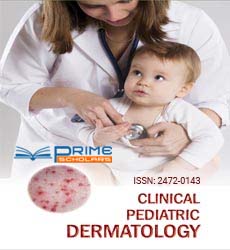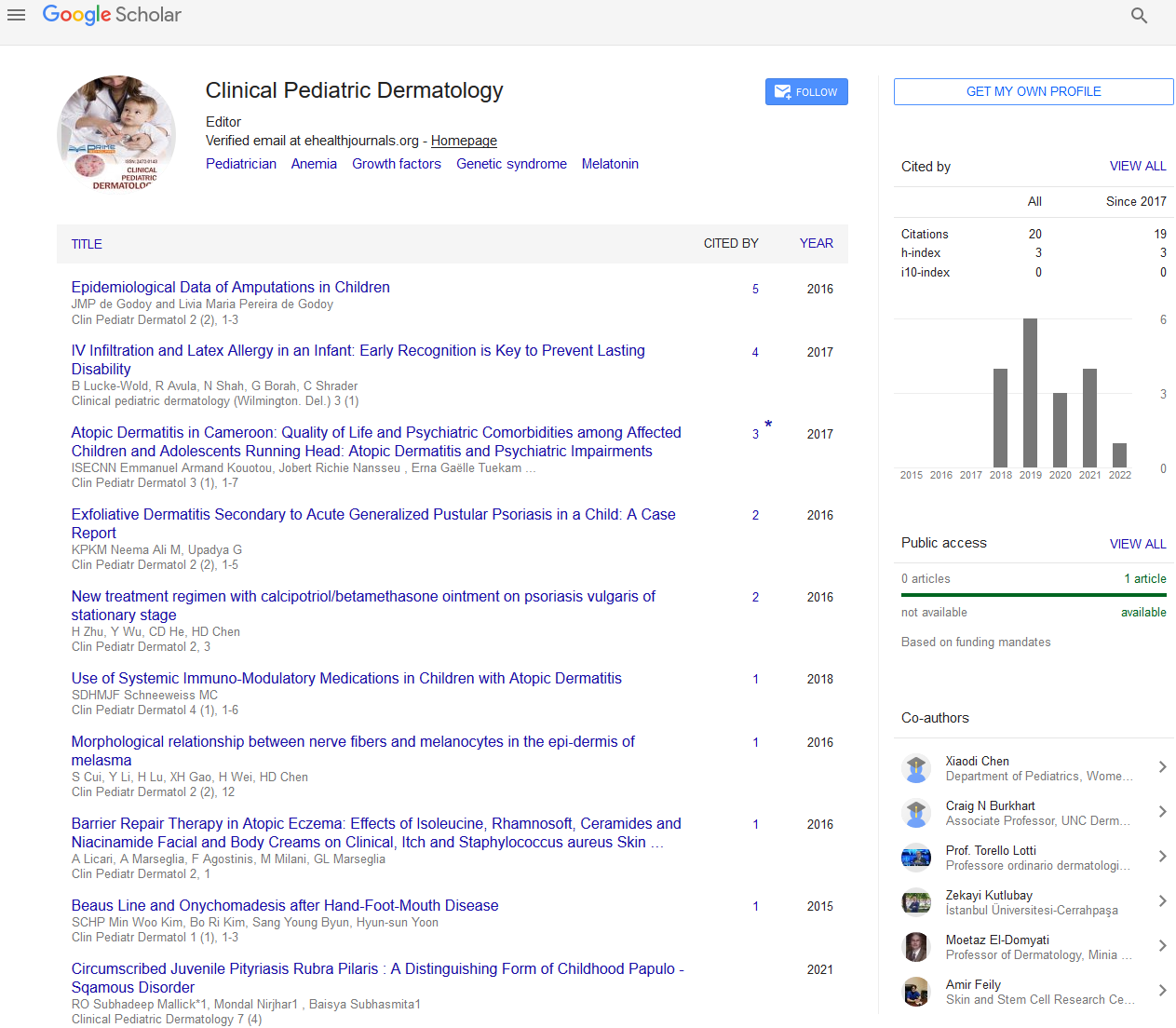Commentary - (2023) Volume 9, Issue 2
Deep Dermatophytosis in Immunocompetent Adults without a History of Skin Disease
Pascal Joly*
Department of Dermatology, Normandie University, France
*Correspondence:
Pascal Joly,
Department of Dermatology, Normandie University,
France,
Email:
Received: 31-May-2023, Manuscript No. IPCPDR-23-17104;
Editor assigned: 02-Jun-2023, Pre QC No. IPCPDR-23-17104 (PQ);
Reviewed: 16-Jun-2023, QC No. IPCPDR-23-17104;
Revised: 21-Jun-2023, Manuscript No. IPCPDR-23-17104 (R);
Published:
28-Jun-2023, DOI: 10.36648/2472-0143.9.2.15
Description
Skin diseases affect a significant portion of the global population,
with a wide array of conditions that vary in severity and complexity.
Fortunately, medical science has made remarkable strides in
understanding these disorders and developing effective treatment
options to manage and alleviate their symptoms. The treatment
of skin diseases encompasses a multidisciplinary approach, incorporating
topical therapies, systemic medications, advanced procedures,
and lifestyle adjustments. In this article, we will explore the
various treatment modalities for common skin diseases, highlighting
the importance of personalized care and ongoing research in
improving patient outcomes. Corticosteroids are among the most
commonly prescribed topical medications for various skin conditions,
including eczema, psoriasis, and dermatitis. They work by
reducing inflammation and suppressing the immune response,
providing relief from itching and redness. However, long-term use
may lead to skin thinning and other side effects. Fungal skin infections,
such as ringworm and athlete’s foot, can be effectively
treated with topical antifungal creams or ointments. These medications
target the fungi responsible for the infection, promoting
healing and preventing recurrence. Retinoids, derived from vitamin
A, are used to treat acne, psoriasis, and other skin conditions.
They help normalize skin cell turnover, unclog pores, and reduce
inflammation. However, they may cause skin irritation and sensitivity
to sunlight. Topical antibiotics are used to treat bacterial
skin infections, such as impetigo and folliculitis. They kill bacteria
on the skin’s surface and are often combined with other medications
for better efficacy. These medications are commonly used for
atopic dermatitis and work by suppressing the immune response
and reducing inflammation. In cases of severe acne or certain bacterial
skin infections, oral antibiotics may be prescribed to target
bacteria from within the body. These medications can help reduce inflammation and prevent the spread of infection. Antiviral drugs
are used to treat viral skin infections like herpes simplex and shingles.
They help to shorten the duration of the outbreak and alleviate
symptoms. Systemic antifungal medications are prescribed for
more severe or widespread fungal infections that do not respond
to topical treatments. In autoimmune skin diseases like psoriasis,
immunomodulatory drugs can be used to regulate the immune
response and reduce inflammation. Biologics are a class of medications
derived from living organisms. They target specific molecules
involved in inflammatory pathways and have shown significant
success in treating conditions such as psoriasis and eczema.
Narrowband UVB and broad-spectrum UVB are commonly used to
treat conditions like psoriasis, vitiligo, and eczema. UVB light helps
slow down the excessive growth of skin cells and reduce inflammation.
The treatment of skin diseases has evolved significantly
over the years, offering patients a diverse array of therapeutic options.
From topical treatments to systemic medications, advanced
procedures, and targeted therapies, the approach to managing
skin diseases is increasingly personalized and tailored to individual
needs. Furthermore, ongoing research and medical advancements
continue to expand the treatment landscape, providing hope for
those affected by previously challenging conditions. With comprehensive
care, a positive attitude, and ongoing support, the burden
of skin diseases can be effectively managed, allowing patients to
lead fulfilling and comfortable lives.
Acknowledgement
None.
Conflict Of Interest
The author’s declared that they have no conflict of interest.
Citation: Joly P (2023) Deep Dermatophytosis in Immunocompetent Adults without a History of Skin Disease. Clin Pediatr Dermatol. 9:15.
Copyright: © 2023 Joly P. This is an open-access article distributed under the terms of the Creative Commons Attribution License, which permits unrestricted use, distribution, and reproduction in any medium, provided the original author and source are credited.

